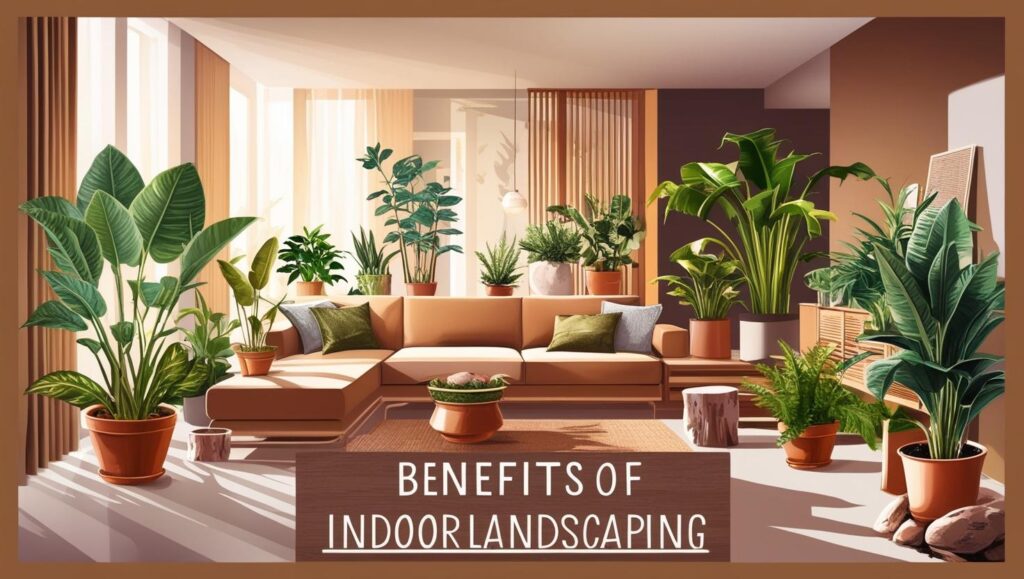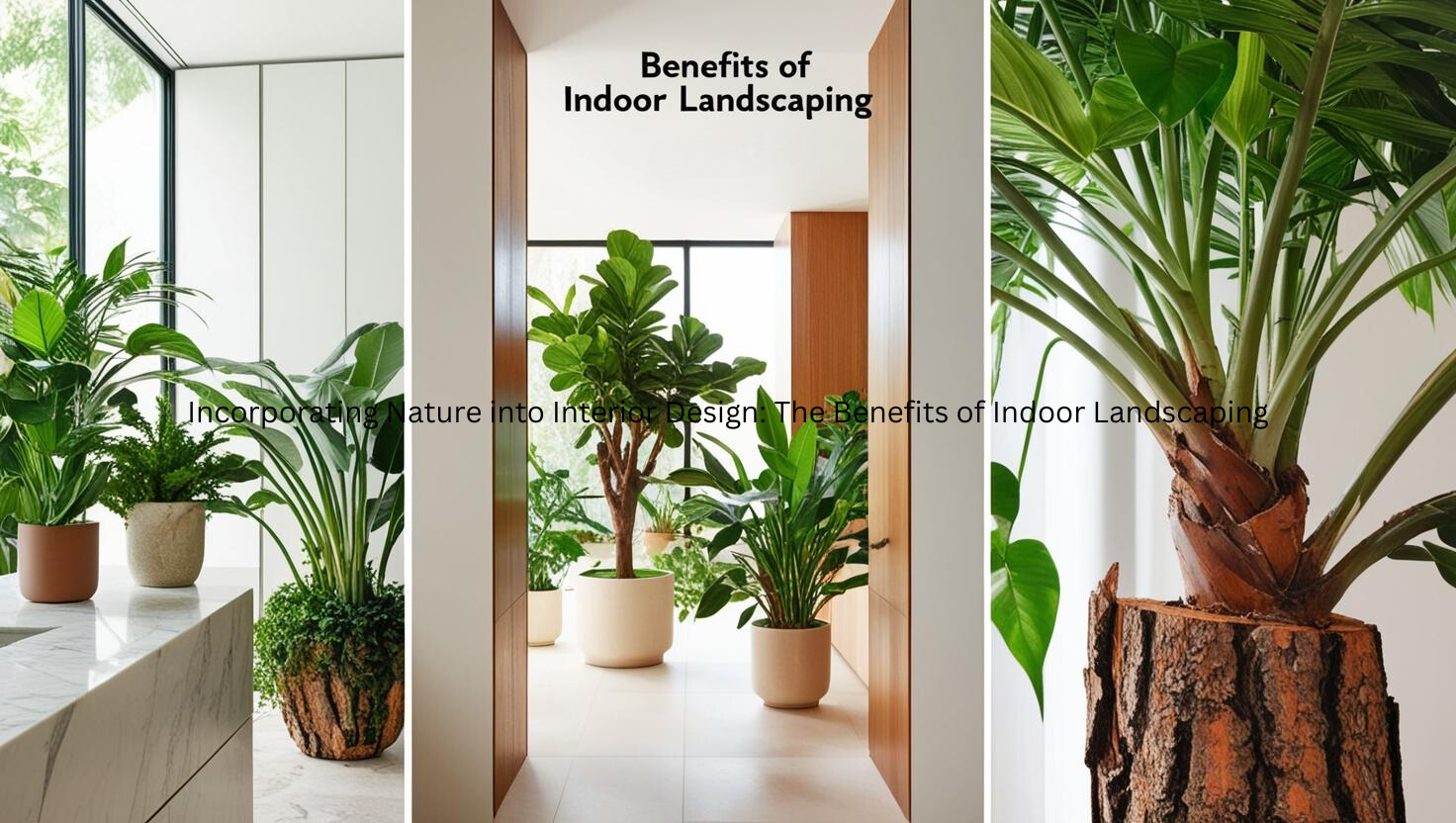Incorporating Nature into Interior Design: The Benefits of Indoor Landscaping
Nature, in the last decade, has become one of the fastest-growing trends in which to add aesthetic appeal and create a better well-being along with a sustainable environment. Indoor landscaping is also known as biophilic design, as it incorporates nature indoors by using plants and other natural materials that bring organic elements for enhancing better interior spaces. Besides space beautification, the same approach offers psychology, environmental, and functional benefits as well. Let's take a dive into the major advantages that indoor landscaping brings to changing interior design.
What is Indoor Landscaping?
Indoor landscaping is a systematic design of plants, greenery, and other natural components found in indoor settings. More than being ornamented indoors with plants, indoor landscaping encompasses living walls, planters, water features, and even a small patch of garden-like setting. This approach of indoor designing aims to balance both the coexistence of nature with human-made structures so as to create tranquility and bonding.

Benefits of Indoor Landscaping
1. Beautiful Outlook
Indoor plants and other natural elements give depth, color, and dimension to indoor spaces. This can be as simple as having a towering fiddle-leaf fig in the living room or a cascading green wall in the office, which can bring out the aesthetic beauty of a place.
2. Quality of Air Improvement
Indoor plants help to remove toxins and purify air. They can remove formaldehyde, benzene, carbon monoxide, and more from indoor pollutants. Therefore, indoor areas become cleaner and healthier.
3. Improved Mental Health
The presence of plants can help reduce stress levels, elevate mood, and enhance productivity. Studies claim that houseplants can be helpful in reducing anxiety levels and contribute to overall wellness.
4. Improved Productivity
Workers concentrate more effectively and are productive in rooms where plants are kept in office spaces. Biophilic workers become highly satisfied and are more likely to remain absorbed with the work.
5. Noise Reduction
Some plant species will absorb sound waves, so that ambient noise inside extensive areas is reduced. The outcome of this makes indoor landscaping extremely useful to open plan offices, restaurants, or any other collaborative workspace.
6. Energy Conservation
Strategically placed greenery will control indoor temperatures by providing shade and subsequently the utilization of air conditioning is reduced. Living walls and vertical gardens serve as natural insulators too.
Emerging Ideas of Interior Landscaping
Living Walls
These vertical gardens create lushness on the walls, save a lot of space while giving the viewers a great visual appeal. They go well in both residential and commercial locations.
Indoor Trees
Use room centerpieces that are large-leaved indoor plants such as ficus or palms. This gives the room a big and classy feel.
Water Features
Create an indoor fountain or aquarium to make the sounds in the house soothing and conducive to the environment.
Potted Plants
Potted plants can be used in any room. Use planters that will complement the interior design.
Natural Materials
Use wood, stone, and other organic elements to bring the interior closer to nature.
Challenges and Considerations
Indoor landscaping has its own set of benefits. However, implementing it requires a lot of planning and attention. Here are some of the key considerations:
Light Requirements: Ensure that plants get enough natural or artificial light.
Space Constraints: Choose plants and lay out that would fit within the available space.
Maintenance Requirements: Plants require watering, pruning, and pest control to ensure healthy life.
Allergens: Select those plants that do not possess allergens.
Conclusion
Nature can be applied in interior designing through indoor landscaping. This is one of the ways of designing spaces that the body and mind will rejuvenate. The mixture of nature with functional design is one of those things that make indoors lively due to its aesthetics, environment, and emotional feelings. It may apply regardless of whether it is a homey, busy office, or retailing shop-it is ambiance and looks change once these are implemented.



